Raise tax for high-income individuals to 30%

The Centre for Policy Dialogue (CPD) yesterday proposed increasing the tax on high-income individuals to 30 percent in fiscal year (FY) 2024-25 as the move would likely reduce income inequality in Bangladesh.
The independent think-tank made the suggestion as the country's Gini coefficient, which is a tool for measuring income inequality within a population, hit a record-high of 0.499 in 2022.
The Gini coefficient is calculated based on the distribution of income or wealth among members of a population, with the index ranging from 0 to 1. A Gini index of 0 represents perfect equality while 1 implies perfect inequality.
Data from the Bangladesh Bureau of Statistics showed that the country's Gini coefficient stood at 0.482 in 2016, indicating that income inequality has gradually risen over the years.
Against this backdrop, the CPD said the National Board of Revenue (NBR) should revise up the personal income tax rate from 25 percent to 30 percent.
The CPD included this proposal while placing its recommendations for the next national budget before the NBR at its headquarters in Dhaka.
Other organisations, namely PwC Bangladesh, the Bangladesh Economic Association (BEA), International Business Forum of Bangladesh (IBFB), SME Foundation, SMAC Advisory Services Limited, and Economic Research Group also placed recommendations.
The NBR will now scrutinise tax-related proposals before sending accepted recommendations to parliament for inclusion in the upcoming national budget, which will be announced in June this year.
"The reduction of the highest tax rate goes against the cause of promoting tax justice," the CPD said in a written statement to the NBR.
Muntaseer Kamal, a research fellow of the CPD, said they have been raising the issue of rising income inequality for a long time, suggesting more taxes should be collected from high-income groups.
In addition to higher taxation on the rich, the CPD urged the NBR to provide relief to taxpayers in lower income brackets as another means of decreasing income disparity.
At present, the tax-exempt income limit is Tk 3.5 lakh. However, people with an income of between Tk 3.5 lakh to Tk 4.5 lakh have to pay 5 percent tax.
And with inflation now eroding peoples' real income, this slab should be stretched to between Tk 3.5 lakh and Tk 5.5 lakh to provide a cushion to taxpayers with such limited income, it added.
The CPD also recommended raising the corporate income tax (CIT) for non-listed companies to 30 percent from the existing 27.5 percent.
Currently, a 15 percent CIT is applicable for universities, medical colleges, dental colleges, engineering colleges, and IT training institutes in the private sector.
"This rate should be reduced to 10 percent in FY25," the think-tank said in its statement.
Additionally, the CPD proposed increasing the corporate tax on all companies manufacturing tobacco products from 45 percent to 50 percent while also hiking the associated surcharge to 5 percent in FY25.
Regarding indirect taxes, the CPD recommended that all academic institutions, including English medium schools, be exempt from value-added tax (VAT) on tuition fees for an indefinite period.
Rumana Haque, a professor of economics at Dhaka University, said the government should increase the tax on sugar-sweetened beverages and tobacco products as such items are health hazards.
Salahuddin Mahmud, managing director (additional charge) of the SME Foundation, urged to relax the mandatory monthly VAT return submissions for entrepreneurs that have annual turnover of below Tk 5 crore.
NBR Chairman Abu Hena Rahmatul Muneem welcomed the proposals and emphasised the importance of saving cottage, micro, small and medium enterprises (CMSME) in the face of heightened competition.
"We have to work for the CMSME entrepreneurs as big players are pushing them back by monopolising the market," he said.
Among others, Aynul Islam, general secretary of the BEA, MS Siddiqui, vice-president of the IBFB, and Snehasish Barua, founding partner at Snehasish Mahmud and Co, also spoke.

 For all latest news, follow The Daily Star's Google News channel.
For all latest news, follow The Daily Star's Google News channel. 

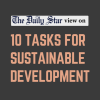
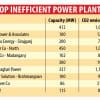
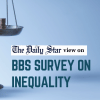
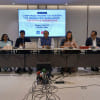
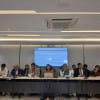


Comments